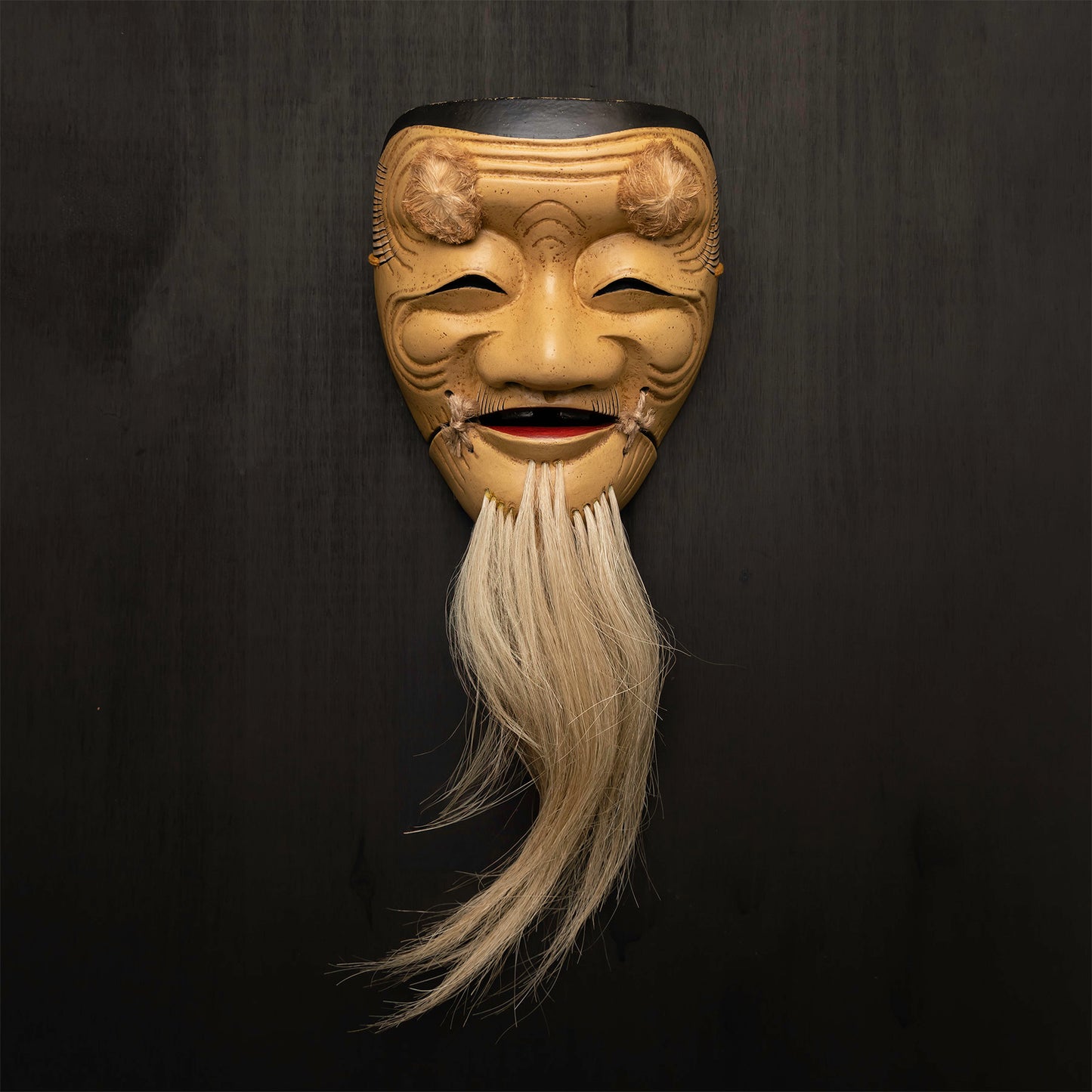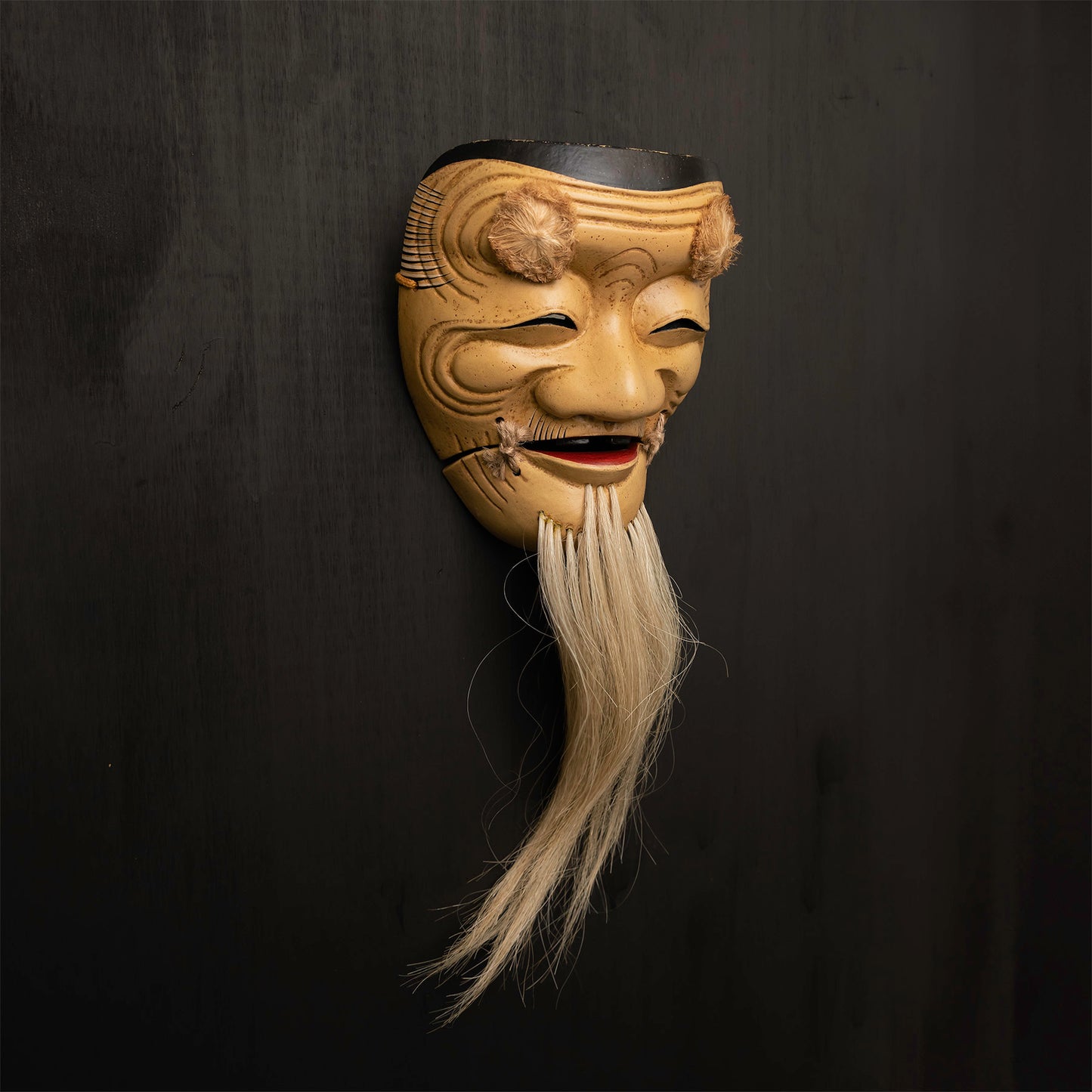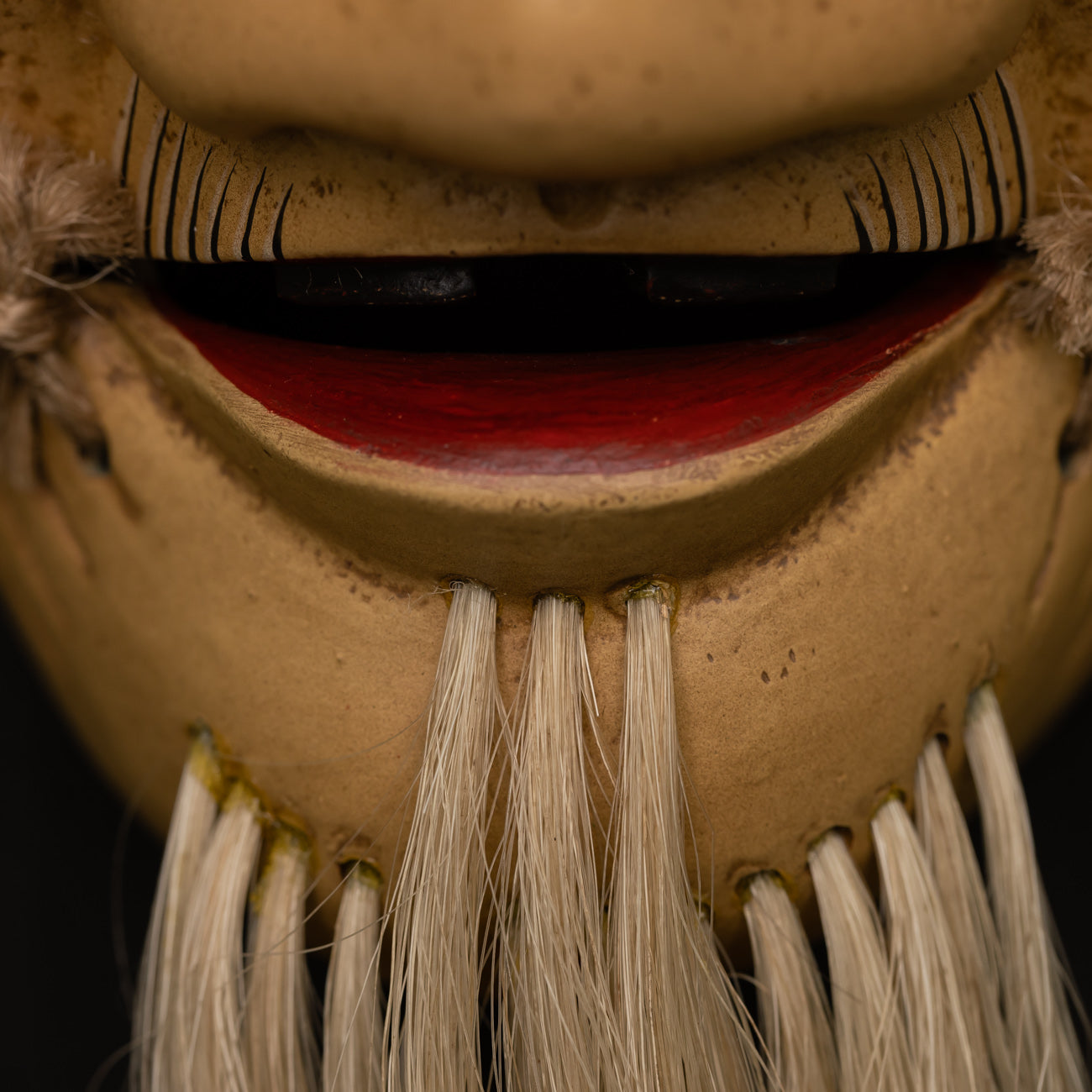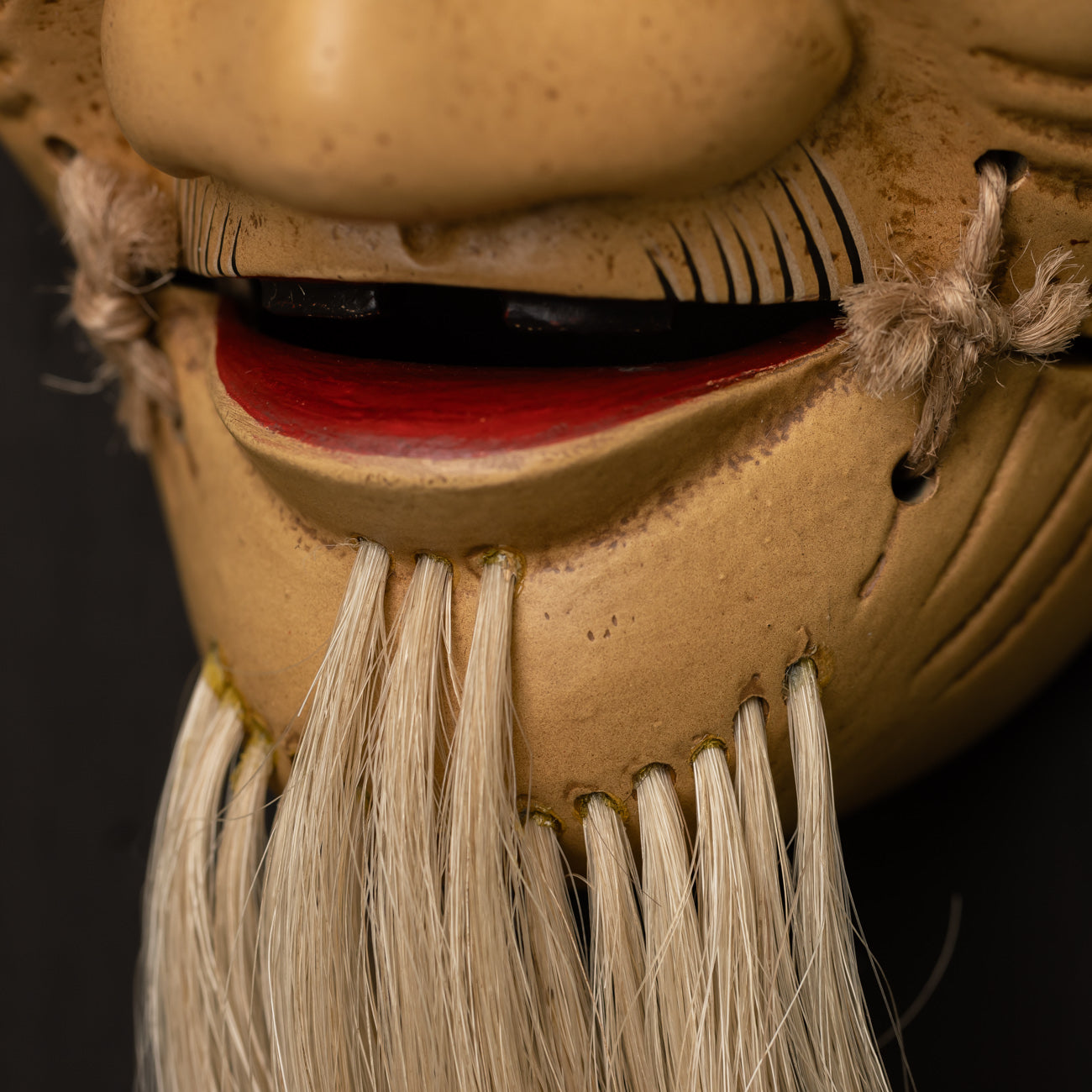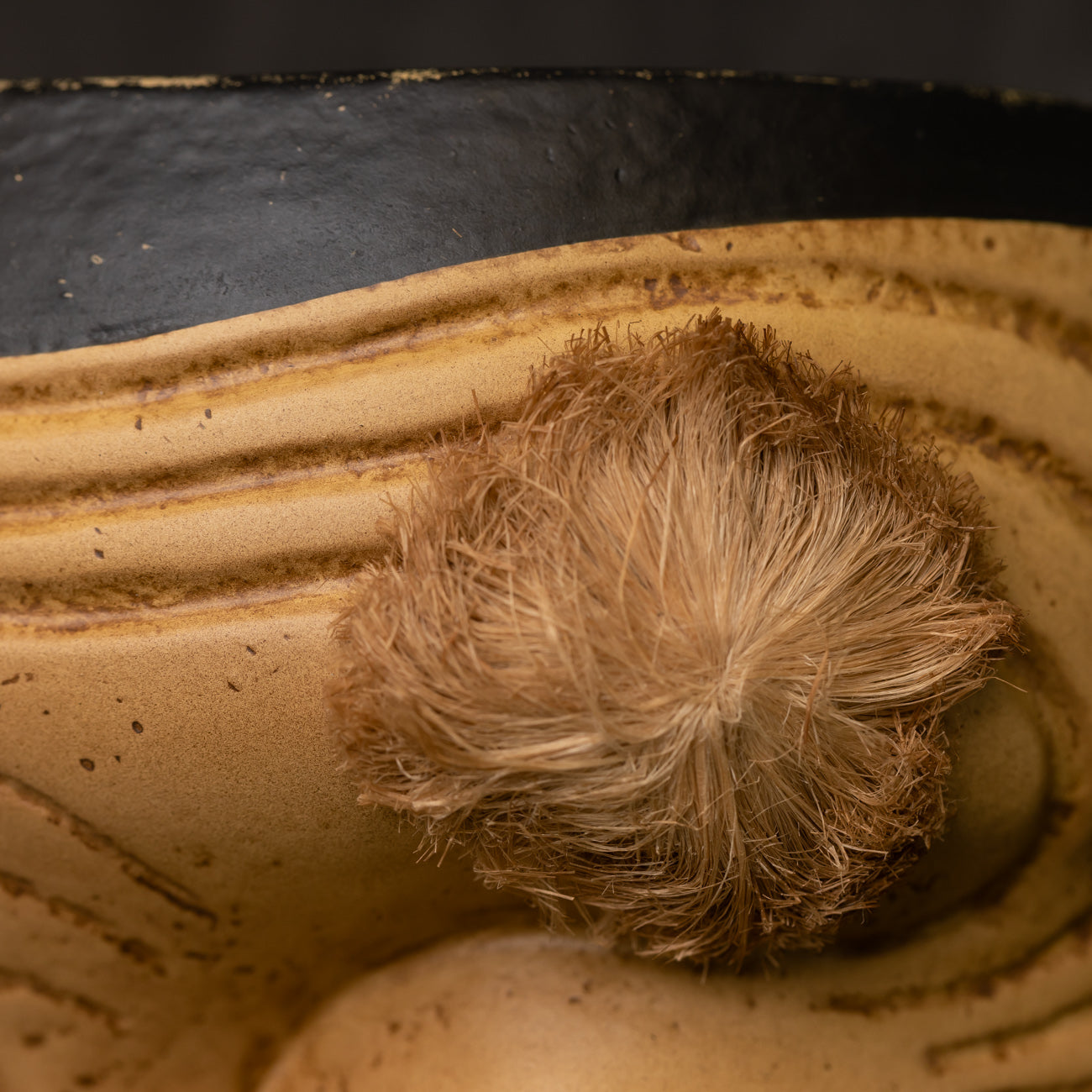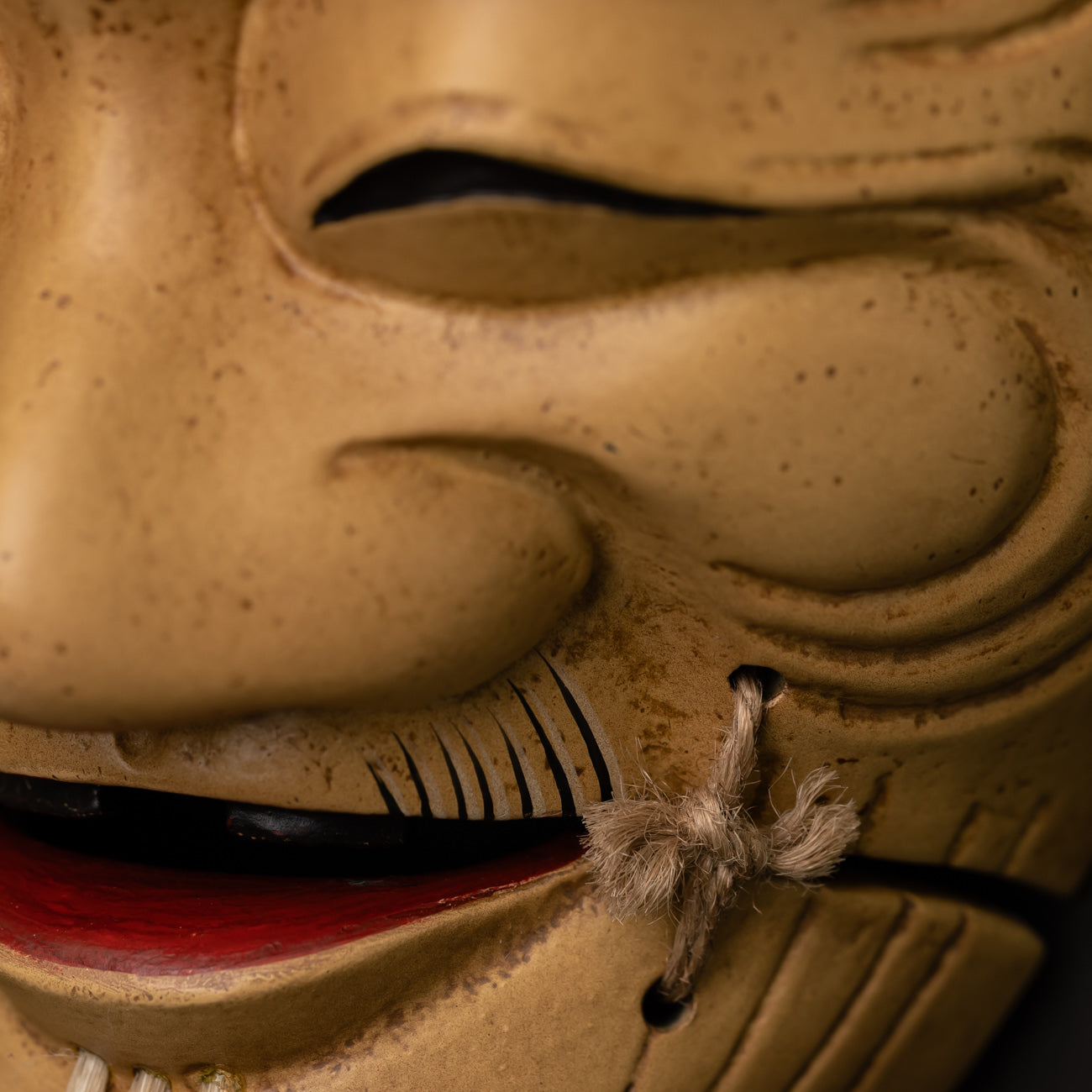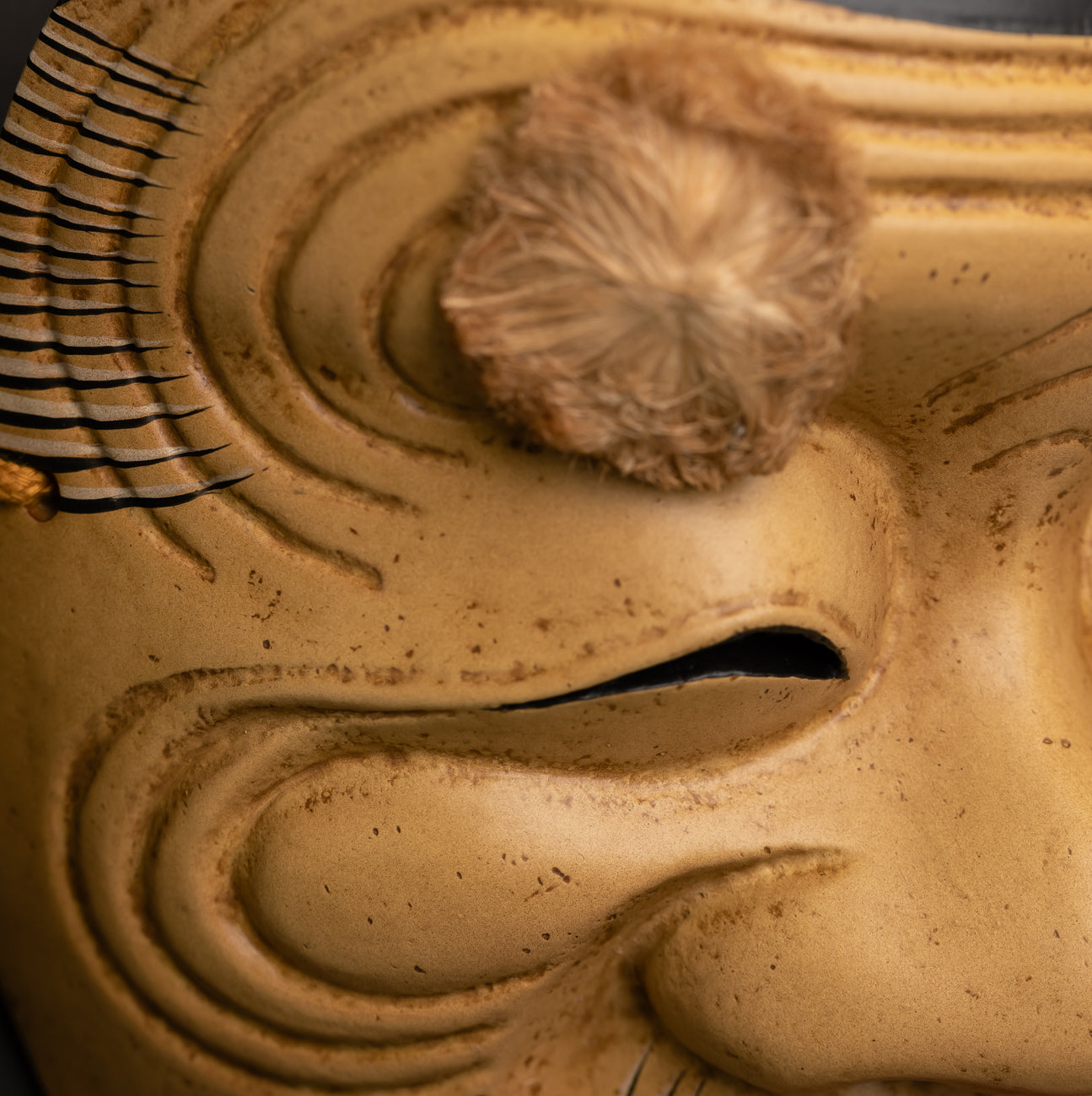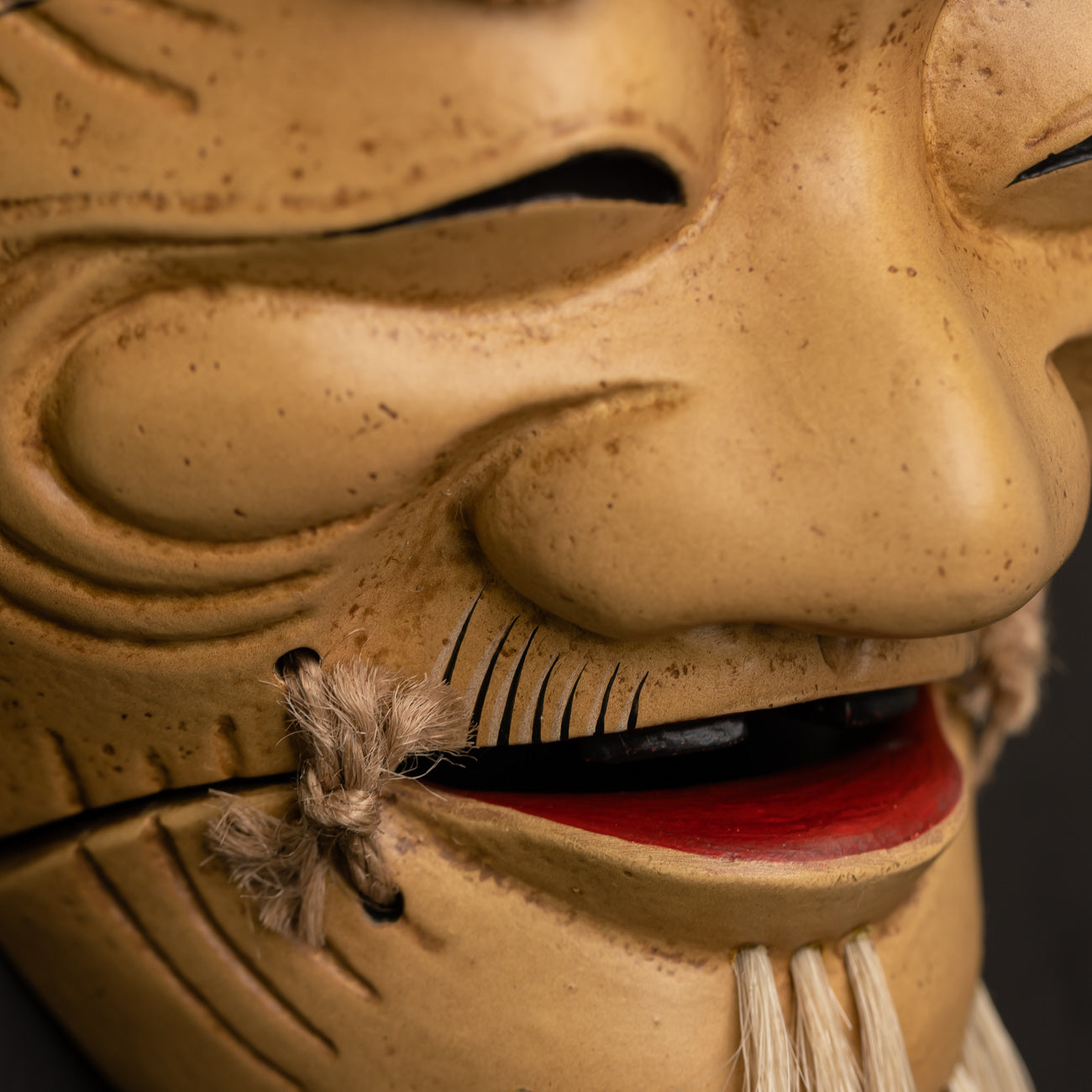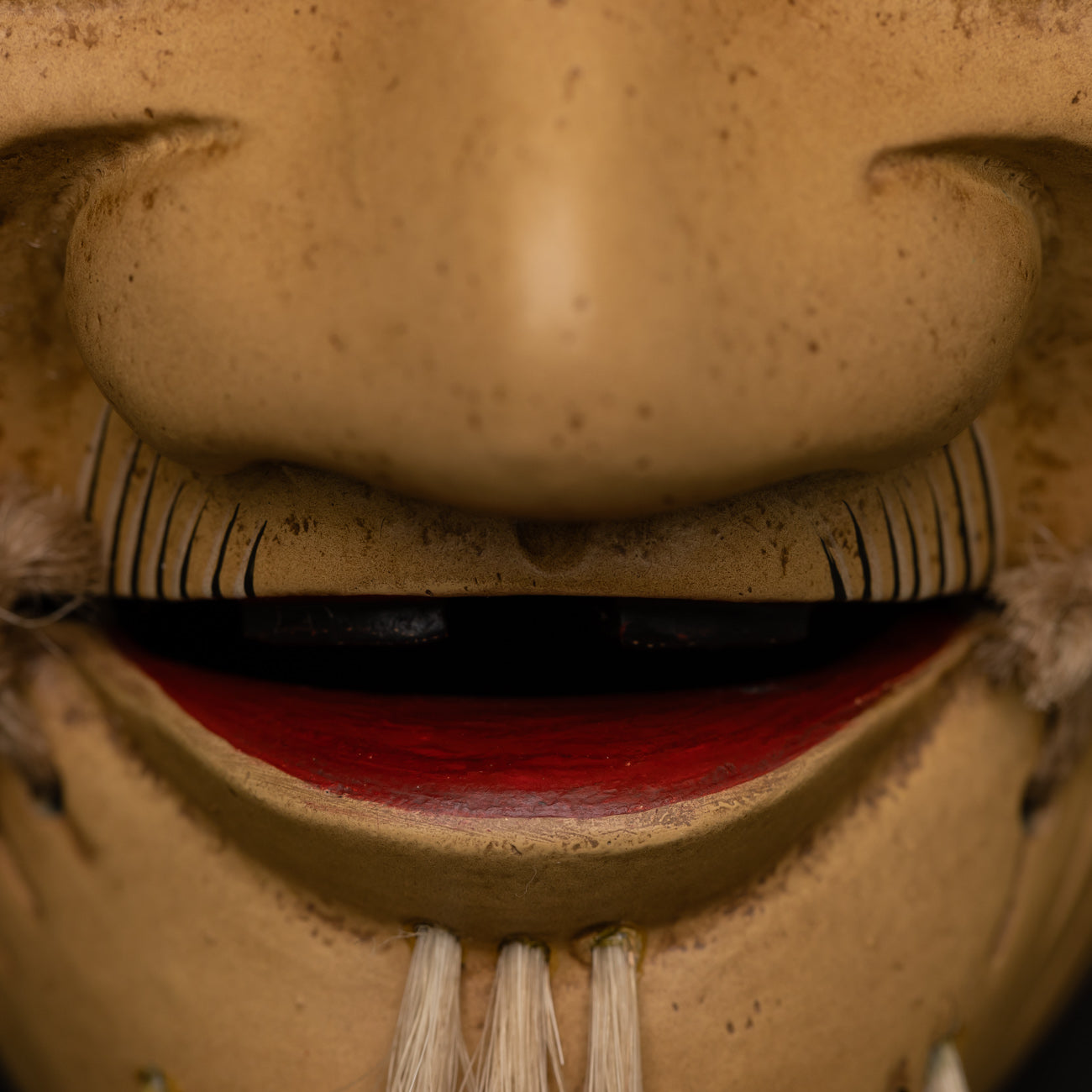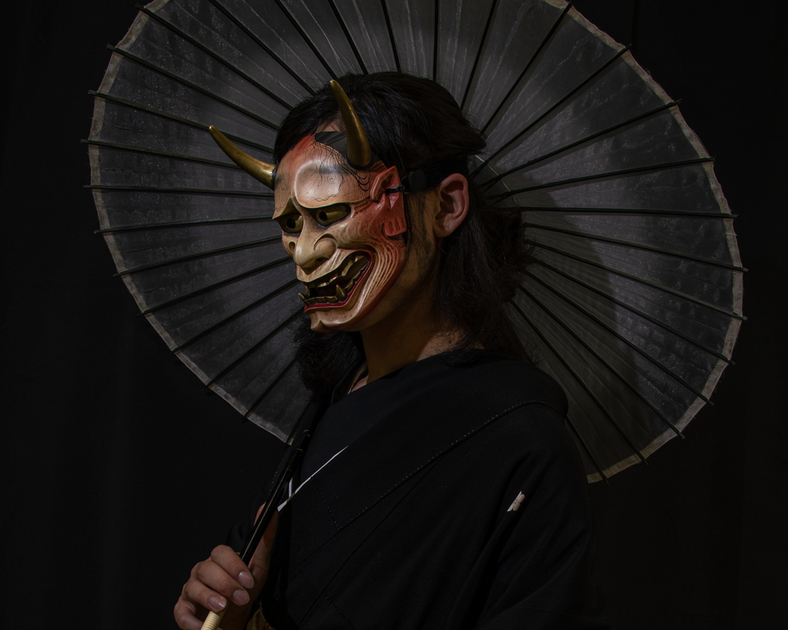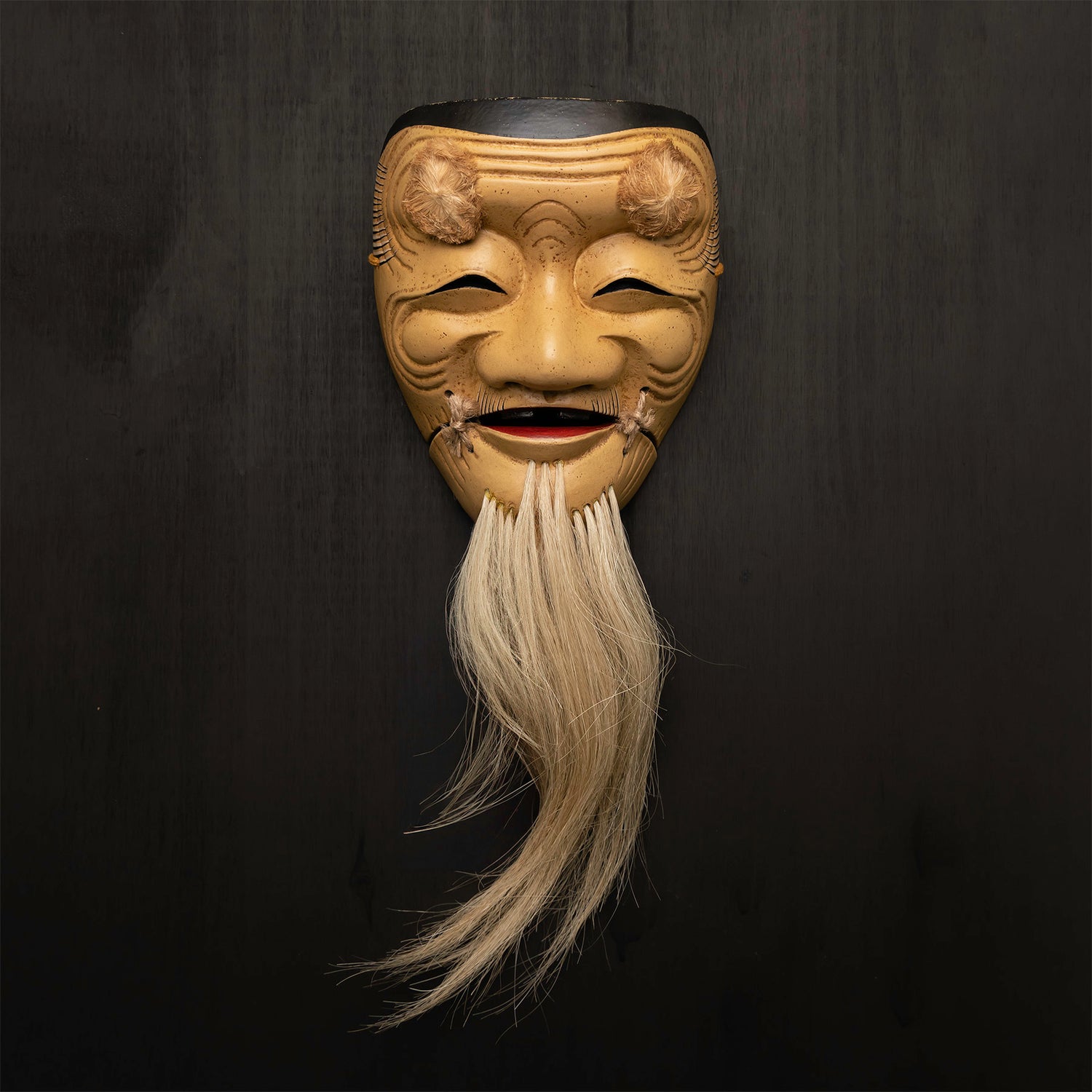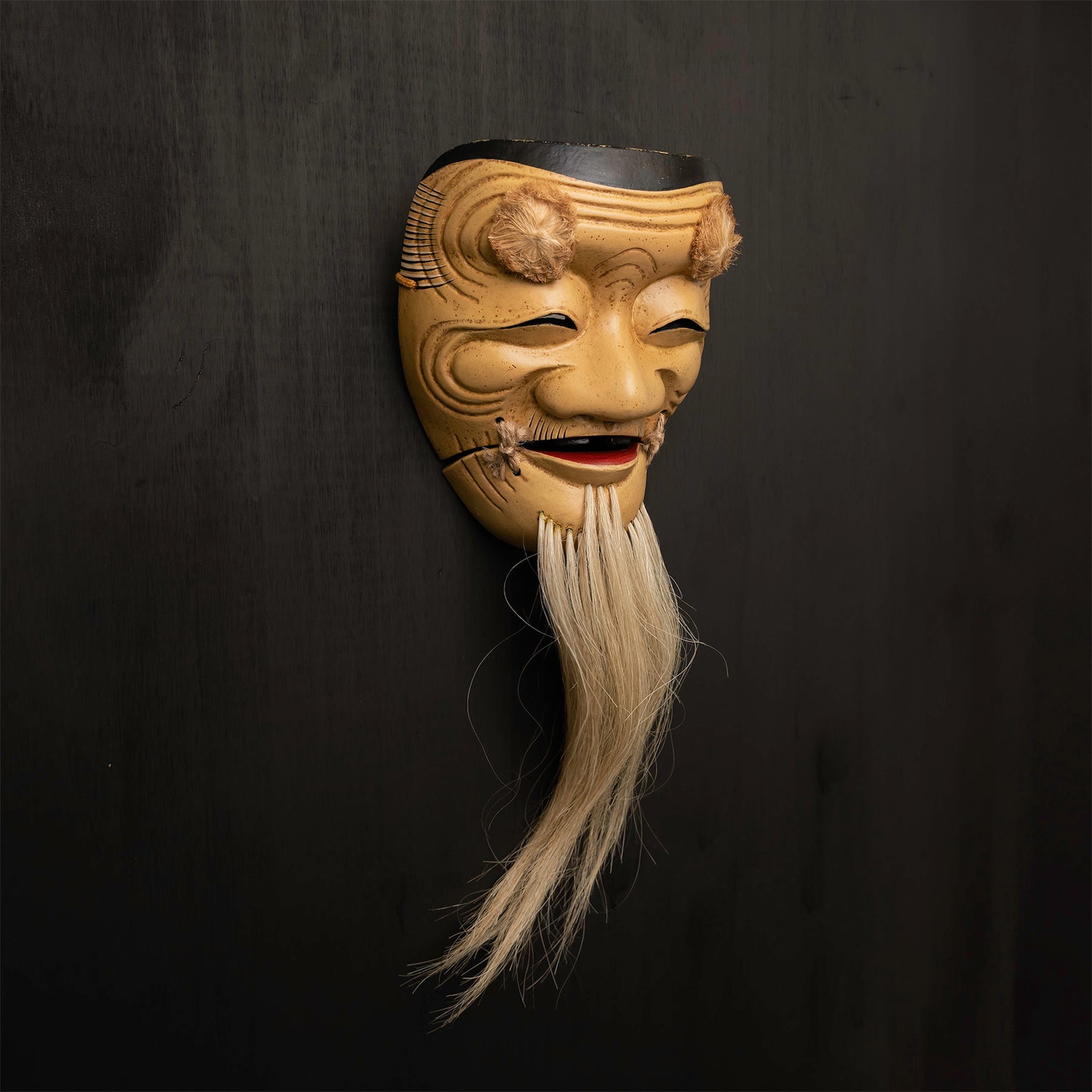the okina lore.
FOR THE OLD SOULS
Different with other mask in Not Plays, Okina mask has a simple mean as a representation for e embodiment of god, bringing longevity and prosperity to Japanese families. The mask is the oldest of the Noh theater and represents an older male with long white beard expressing wisdom. It is also a name of a special ceremony in Japanese theater that's like a prayer for peace. It's not exactly a play but more of a traditional performance done by Shinto priests. Unlike regular plays, "Okina" doesn't have a story. It's performed on happy occasions like New Year's Day or when new theaters open.
Long ago, Japanese gods were thought to be invisible, but around the 8th and 9th centuries, they started being pictured as old men, called Okina, in stories and writings. These old men gods would appear in the world to give advice and make predictions. At the same time, people began making images of gods, and some of the oldest ones looked like old men.
In old stories, Okina is linked to mountain and sea gods, who were believed to help people in tough times, share wisdom, and set good examples. So, legends about Okina aren't just about a god—they also teach important lessons about life and morals.
